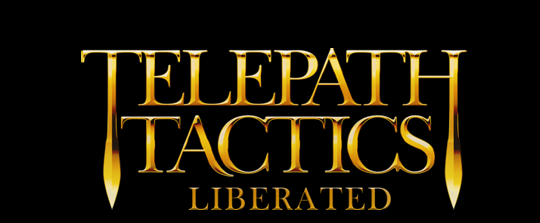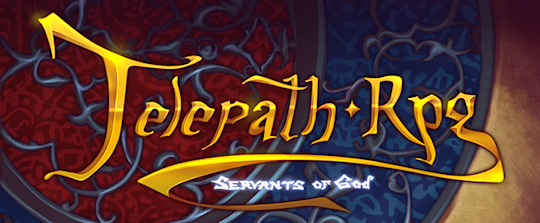Thanksgiving is a peculiar but wonderful American holiday. What originated as a harvest festival has become a time to gather with family and close friends and share the many things we’re thankful for over the prior year. Forget the aprocyphal tales of Native Americans sharing turkeys with pilgrims: this is a holiday about meditating on the good things we have.
And that tradition is more important than ever this year. Life in the U.S. is hard for many people right now, including myself; for Europeans, too, and others around the world. But there is still a lot to be thankful for. Here are two big things that score astronomically high on my gratitude meter.
1. It is technically possible for me to make video games
I’ve always been able to make games, but video games? If you think about it, that in itself is actually something of a human miracle. Think about the raw material components that have to be present even to be able to make a video game. Electricity; circuits to funnel it; chips designed to shut circuits on and off. These basic innovations, all by themselves, took many years of incredibly hard work to discover, much less refine into their present form. And the infrastructure costs to deliver electricity to every home; we’re talking billions of homes throughout the world! Really, the amount of work that must have gone into it all is breathtaking to consider.
But we needed more than electricity and circuits to manipulate it; we needed to create computers themselves. Not incredibly expensive, room-sized monstrosities with vacuum tubes, mind you, but computers sufficiently small and inexpensive that I could afford to buy one. And those computers would have to run something: think of how many years people have been working on that baseline programming, starting from machine code and working up to today’s highly intricate and user-friendly operating systems. It’s an incredible leap that has nonetheless taken decades for thousands of brilliant men and women to achieve.
Consider all the work that has gone into creating powerful, useable standards for sound and graphics alone. These are crucial: they allow different machines to all run the same programs with some degree of predictability. Consider the years of works put into developing high-level programming languages, and standalone software products that make it possible to create a game with limited resources and in a reasonable amount of time.
It is no exaggeration to say that many thousands of man-years have been invested into the creation of these things. I consider this a human miracle: one we produced collectively, on our own. It’s really humbling to think of all those years of work and ingenuity that led to a lawyer with an English degree and no programming background being able to write his own video games. Make no mistake: I am incredibly lucky to be alive right now and able to benefit from these innovations. For that, I am intensely thankful.
2. I get to release video games
Don’t take this the wrong way: making games is extremely time-consuming and difficult work. But it’s also incredibly rewarding. There’s nothing quite like pouring hours and hours and hours of hard work into something and watching it take shape, tweaking it and polishing it and turning it into the best thing it can be. Sharing that thing with others can be nerve-wracking, but doing so has given me some of the most intensely happy moments of my life.
It used to be that if you made a game as an independent programmer, you really had only two realistic ways of sharing it with others: word-of-mouth (so-called “shareware,” in which you quite literally shared demos with friends by passing them floppy discs with games on them), and advertising in print media, leaving people a physical address to which they could send you some money in exchange for a copy of your game.
The internet (and, just as importantly, various institutions on the internet) have changed all of that. You don’t need to physically mail away for an indie game; you don’t need someone to physically provide you with some form of storage media containing the games you want to play. They are just there, available for download wherever and whenever you want them. That is remarkable.
This has remarkable side effects, too. Indies still do the shareware thing, but now we call them demos. Just like shareware did, our demos unlock with an activation code. The only difference is, now we can distribute our games without the cost of buying physical media or postage; we can advertise them without buying ads in print magazines. Even better, there are now internet publications that go out of their way to write about these games. The big publishers no longer have a monopoly on access to the attentions of the buying public. How cool is that?
Just as cool is the amount of administrative work that the internet now automates for us.I remember back in the mid-2000s when I sold trip hop albums in brick-and-mortar stores; I had a folder where I kept track of which stores had CDs, and how many they had. Every week or so, I’d do the rounds, seeing which ones had sold an album, collecting my cut, and noting the sale with a date.
No more of that! Game developers no longer have to physically take note of every sale we make, since most of us don’t even make sales in physical stores anymore. Instead, we rely on payment processors like BMT Micro and Plimus, which automatically track online sales information for us. As an added bonus, they will even break it down through analytics. It’s incredibly useful, and a huge time saver.
That one-two punch of immediate access to the entire world of game-loving people, combined with the incredible ease of actually sharing my work with them, are incredibly lucky breaks for an indie developer like me. For those, I am profoundly thankful.
Conclusion
The economy may be tough, but we live in amazing times. In spite of the downturn, life as an indie game developer is more viable now than at any other point in the entire history of the world. That’s awesome, in the original sense of the word. That feeling of awe I get thinking about all of the amazing things I’ve benefited from makes me thankful. Hopefully it will make you feel thankful, too. Have a happy holiday, and good luck to us all.
–Craig Stern






